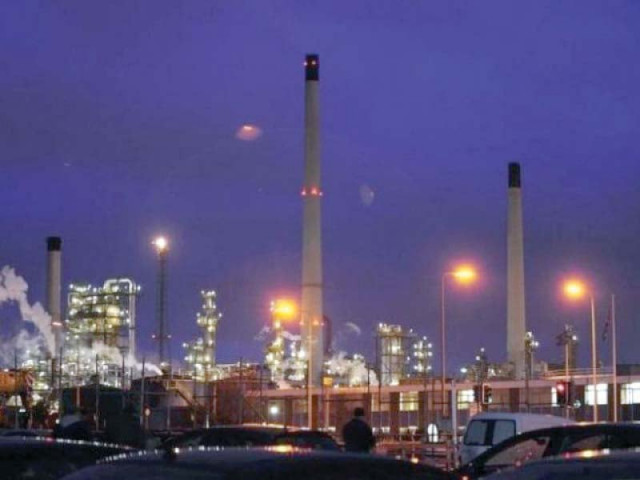Refineries weigh option of furnace oil export
Stocks have swelled as domestic demand goes down sharply

Furnace oil exports will allow the refineries to resume production and put a cap on mounting losses suffered due to plant closure and heavy demurrages. PHOTO: FILE
“Byco Petroleum has initiated talks with potential international clients for disposing of the surplus furnace oil,” the official, who was aware of the development, told The Express Tribune.
When approached, a Byco official did not deny nor confirm the development. The private sector company owns the country’s largest refinery of 120,000 barrels per day which has been staying closed for about two weeks because of a supply glut.
Its another refinery of 23,000 barrels per day has, however, managed to keep running, but it is producing a very small quantity.
“It (Byco) is alone holding 40,000 tons of furnace oil,” the official said. “National Refinery and Pakistan Refinery may follow suit by starting negotiations for exports and restart production.”
Oil refineries get entangled in ‘worst’ operational crisis
Heavy demurrages
Furnace oil exports will allow the refineries to resume production and put a cap on mounting losses suffered due to plant closure and heavy demurrages on delay in lifting the imported crude from ships.
“Four ships carrying a big quantity of crude oil for Byco are standing in the sea since mid-October,” the official said. “Demurrages, which run into thousands of dollars per day, are unnecessarily eating into the country’s foreign currency reserves.”
State-owned marketing giant Pakistan State Oil (PSO) has also been paying demurrages of $15,000 per day per ship for furnace oil imports. “There is at least one ship in the queue waiting for cargo offloading while two more vessels are on the way to Pakistan waters,” he said.
If storages remained full, then the arriving two ships would also have to stand in the open sea, forcing PSO to pay more demurrages, he feared.
To the relief of refineries, oil-fired power plants resume production
Negotiations fail
Another industry source said the government had taken a rigid stance against the refineries. “It is no more interested in listening to their arguments and has asked them to export oil stocks in order to get rid of the crisis,” he said. “But it is not an easy solution.”
A day ago, he said refineries were trapped in the worst operational crisis in the country’s history because of government’s inefficiency and poor planning, and its latest decisions were compounding the problems instead of resolving them. The refineries, which meet 30% of the country’s needs, were feeling suffocated following excessive imports of furnace oil and liquefied natural gas (LNG) to run power plants, he said.
“All oil storages and bowsers (tankers) are brimming with furnace oil while pipelines (used to transport oil from the refineries to power plants) are choked with oil,” he said.
Published in The Express Tribune, December 21st, 2017.
Like Business on Facebook, follow @TribuneBiz on Twitter to stay informed and join in the conversation.



















COMMENTS
Comments are moderated and generally will be posted if they are on-topic and not abusive.
For more information, please see our Comments FAQ